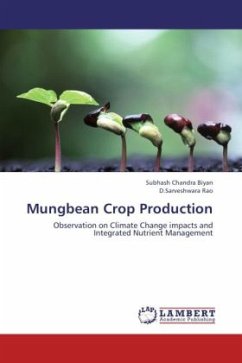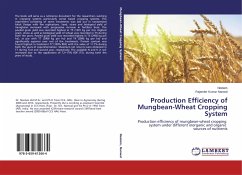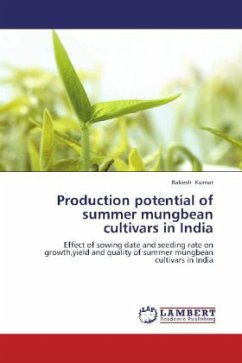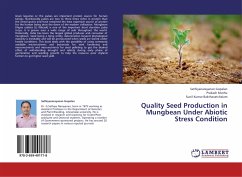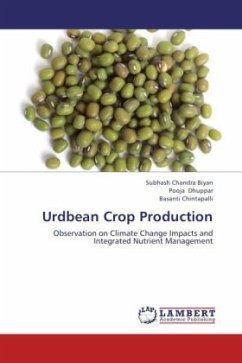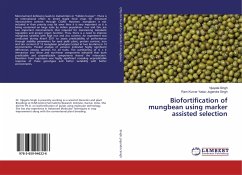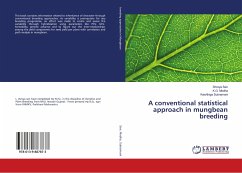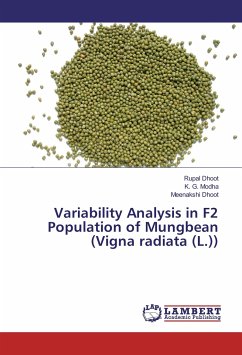Understanding the nature and management of yields in different crops due to climate change is the focus of attention in agricultural research around the world. Due to stagnation in production, the availability of pulses has come down from 60g/day/person in 1951 to 31g/day/person in 2008. India is a leading country in the Mungbean production. The present work on mungbean combines observation on vegetative growth, development and reproductive performance of Mungbean in relation to the trends in weather variables and also the results of experiments on integrated nutrient management. Increased temperature above historical averages, particularly the minimum temperature was observed. Similarly, variation in the intensity and duration of precipitation during the cropping season was recorded. These events had an impact on the reproductive performance of Mungbean. However, application of nitrogen fixing and phosphate solubilizing bacterial biofertilizer along with minimal doses of synthetic fertilizers enhanced crop yield, considerably. The study recommends integrated plant nutrient management as a part of sustainable agriculture practice for Mungbean crop production.
Bitte wählen Sie Ihr Anliegen aus.
Rechnungen
Retourenschein anfordern
Bestellstatus
Storno

